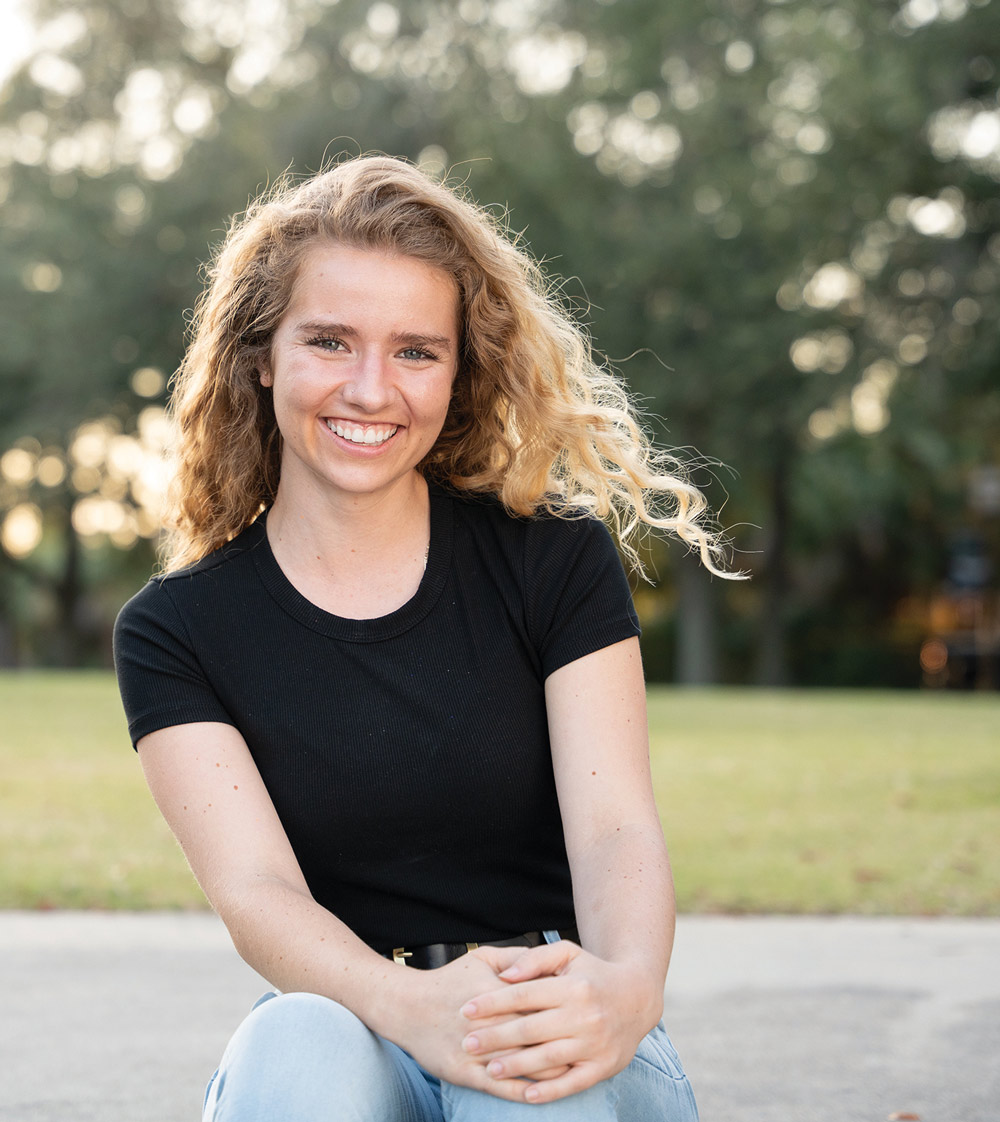
triple threat
“They’re the names of innocent children killed by police in the war against crime,” he told her.
Ríos met a lot of people facing difficult situations while she was in Brazil. As a volunteer with the homeless population, she saw the breakdown in the relationship between the communities and government and how grassroots organizations were trying to fill the divide.
From these collective experiences, Ríos – a political science, Spanish and international studies triple major in the Honors College – realized she wanted to help facilitate community development and social dignity through diplomatic connections and, by extension, work against organized crime, which runs rampant in many Latin American countries.
Ríos – who, having Puerto Rican roots, always had a fascination with Latin America – was in Brazil on a Boren Award for International Study, sponsored by the Department of Defense’s National Security Education Program to help bolster the number of experts in the languages and cultures of nations that are important to U.S. foreign policy.
To receive the award, Ríos had to create an academic program that would demonstrate her full immersion in Brazilian culture and ability to gain an expert-level grasp of the Portuguese language. She did this through her program at the Pontifical Catholic University of Rio de Janeiro and Caminhos Language School, where she engaged in 18 hours of Portuguese each week along with Brazilian culture and language studies.
She gained a multifaceted perspective of the country beyond her experiences in classrooms. She joined the school futsal (indoor soccer) team, helped them win the intercollegiate tournament and was named MVP.
She also volunteered to teach English to teenagers, focusing on cultural diplomacy and overcoming students’ biases, as well as her own.
“Many times, we learn about other cultures through television shows, music and sports,” explains Ríos, a College of Charleston Foundation Annual Scholarship recipient who grew up in Bluffton, S.C. “These sources can create biases, which can be interesting as well as challenging to overcome.”
Ríos plans to pursue a master’s in criminology in the UK after she graduates in May. Once she completes her graduate studies, she will devote a year of government service per the stipulations of the Boren Award. Ríos intends to fulfill her obligation by entering the foreign service.
By then she will be primed for a career in fighting international organized crime. She believes the community-organized strategies aren’t receiving the same attention as militaristic responses and wants to do her part to change that.
“I met incredible activists working against gang and police violence for the betterment of their neighborhoods,” she says. “I want to prioritize community perspectives in the development of strategies against organized crime. That’s how we’ll foster sustainable peace.”